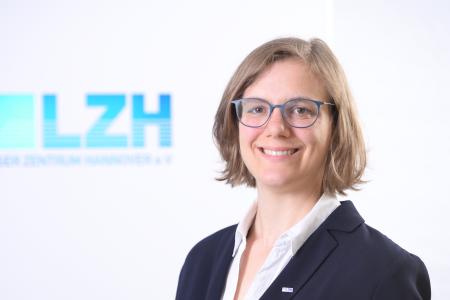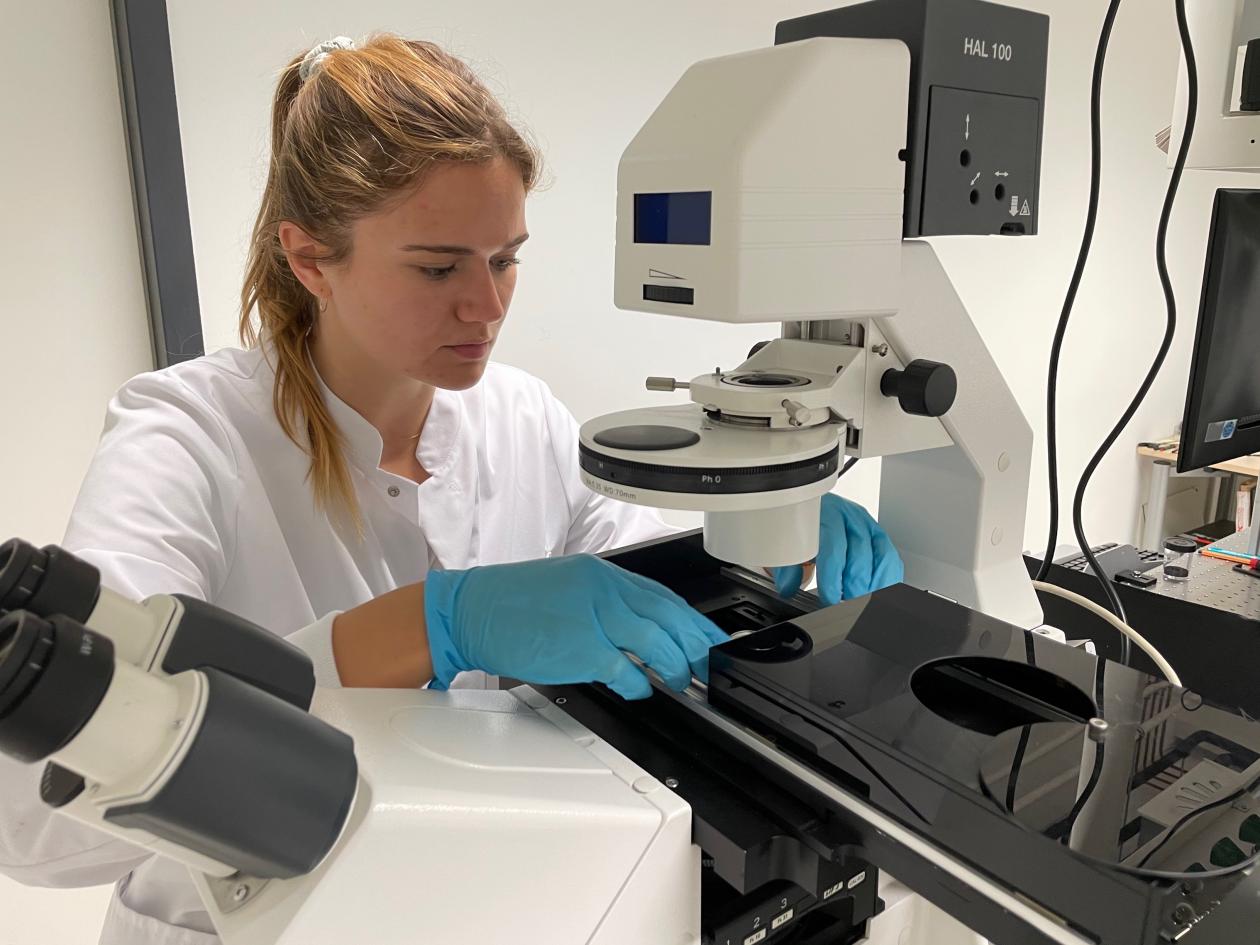Detecting bacterial infestation fast, contactless and free of markers
Deciphering the composition of biofilms currently takes at least a day - an enormously long period for the clinical setting in which biofilms can be life-threatening. The PriMe partners now want to combine multiphoton microscopy and metabolic imaging to significantly speed up the process. To this end, they are developing a novel laser beam source with spectral properties specifically adapted to the application.
Determine biofilm via metabolic products
With this laser source, LZH and Becker & Hickl GmbH want to detect metabolic products such as the coenzymes NADH, FAD, and additionally the amino acid tryptophan. The latter is a central component of proteins and peptides. The combined values should then make it possible to determine which bacteria are present in the biofilm. The project goal is to develop a demonstrator with which clinical material can be examined.
The basis for the demonstrator will be an innovative, multi-modal ultrashort pulse (USP) fiber laser system, which the LZH is developing together with VALO Innovations GmbH and TEM Messtechnik GmbH. It will be optimally adapted to the needs of multiphoton microscopy and extended fluorescence lifetime measurement. With the new laser source, the scientists aim to gain fundamentally new insights into bacterial communities and environmental influences.
They also want to lay the foundation for a new diagnostic procedure that could significantly simplify the treatment of bacterial infections.
About „PriMe“
In the joint project "PriMe", the detection and classification of bacterial growth are pursued through multiphoton microscopy and molecular or metabolic imaging. The collaborative partners are TEM Messtechnik GmbH, Becker & Hickl GmbH, VALO Innovations GmbH, and Laser Zentrum Hannover e.V. Associated partner is APE Angewandte Physik u. Elektronik GmbH. The project is funded by the German Federal Ministry of Education and Research (BMBF).
Partner

Laser Zentrum Hannover e.V. (LZH)
As an independent, non-profit research institute, the Laser Zentrum Hannover e.V. (LZH) stands for innovative research, development, and consulting. Supported by the Lower Saxony Ministry of Economics, Transport, Construction and Digitalization, the LZH is dedicated to selflessly promoting applied research in the field of photonics and laser technology. Founded in 1986, almost 200 employees are now working at the LZH.
The LZH offers solutions to current and future challenges with its smart photonics. Along the process chain, natural scientists and engineers work interdisciplinary together: from component development for specific laser systems or for quantum technologies to process developments for a wide variety of laser applications, for example for medical and agricultural technology or lightweight construction in the automotive sector. 18 successful spin-offs have emerged from the LZH to date. Thus, the LZH creates a strong transfer between fundamental science, application-oriented research, and industry - and uses light for innovation.

